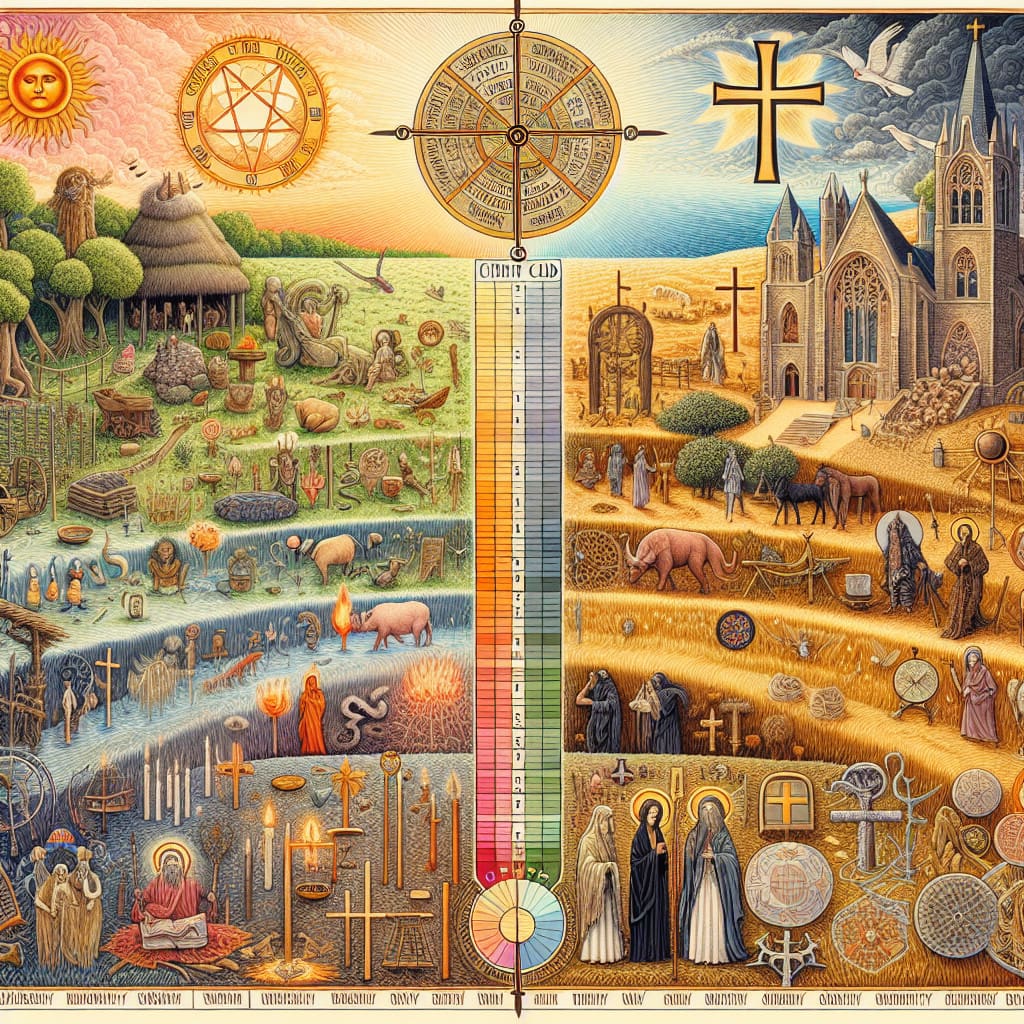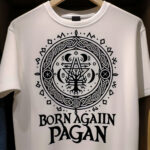The age-old debate of which religion is the oldest has been going on for centuries. With the emergence of Christianity, many have argued whether or not it has taken the place of the more ancient pagan religions. In this article, we will look at the evidence to see if pagan religions are indeed older than Christianity. We will examine the history, beliefs, and customs of both religions to determine which one is the oldest. We will also explore the impact that each religion has had on society and the world.
Paganism is one of the oldest religious beliefs in the world, with a history that dates back to pre-Christian times. While some aspects of the faith have changed over the centuries, its core tenets have remained consistent. In this article, we’ll explore the history of paganism and how it has evolved over time.
What is Paganism?
Paganism is a polytheistic faith that is based on the worship of nature and its cycles. Followers of the faith believe in a divine energy that exists in all living things, and they strive to create a harmonious balance between humans and the environment.
There is no single definition of paganism, as there are many different beliefs and practices associated with it. However, some of the core beliefs include animism (the belief that all living things possess a spirit), polytheism (the belief in multiple gods), and the reverence of nature.
History of Paganism
Paganism has a long and rich history that dates back to ancient times. It is believed to have originated in the Middle East and spread throughout Europe, Asia, and North Africa.
The earliest evidence of pagan beliefs dates back to the Neolithic period, when hunter-gatherer societies began to practice ritualistic worship of nature. This practice eventually evolved into more sophisticated forms of worship, such as the worship of gods and goddesses.
Paganism was widespread in the ancient world, and it was particularly popular in the Roman Empire. During this period, pagan customs and beliefs were often blended with Christianity, with some individuals even worshipping both.
Decline of Paganism
Paganism began to decline during the early Middle Ages, when Christianity began to gain ground. This was largely due to the efforts of Christian missionaries, who sought to convert pagans to Christianity.
In addition, the rise of the Roman Catholic Church and the adoption of its doctrines by many European rulers led to the further decline of paganism. As a result, by the 11th century, paganism had become largely extinct in Europe.
Revival of Paganism
Paganism began to make a resurgence in the late 19th century, largely due to the efforts of figures such as Gerald Gardner and Aleister Crowley. These individuals sought to revive the ancient pagan beliefs and practices and to make them more accessible to modern people.
In addition, the rise of environmentalism in the 20th century led to a renewed interest in paganism, as its reverence for nature resonated with many people. This resurgence of paganism has continued into the present day, and it has become a popular faith among many individuals.
Modern Paganism
Modern paganism is a diverse and vibrant faith, with a wide variety of beliefs and practices. It is largely based on the ancient pagan beliefs, but it has also been influenced by various other traditions, such as Wicca, shamanism, and various Eastern religions.
Today, paganism is practiced by millions of people around the world, and it is steadily growing in popularity. It is also becoming more accepted by mainstream society, with many pagans now openly practicing their faith without fear of persecution or prejudice.
Paganism vs. Christianity
Paganism and Christianity are two very different faiths, with different beliefs and practices. While Christianity is a monotheistic faith that is based on the worship of one God, paganism is a polytheistic faith that is based on the worship of multiple gods and goddesses.
In addition, Christianity is a relatively recent religion, having been founded in the 1st century CE. Paganism, on the other hand, has a much longer history, with evidence of its practice dating back to pre-Christian times. As such, it is safe to say that paganism is indeed older than Christianity.
In conclusion, it is clear that Paganism is an ancient religion that has been around for centuries, predating Christianity by thousands of years. Pagans have a deep and rich history, with a wide variety of beliefs and practices that are still practiced today. While Christianity is the dominant religion in many parts of the world, it is important to remember that Paganism is still a vibrant and important part of the religious landscape. It is essential to recognize and respect the diversity of beliefs and practices within the Pagan community, and to acknowledge the long and meaningful history of Paganism.





